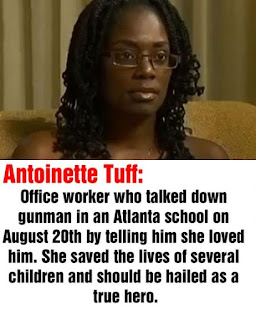On a quiet evening in England, two young men were conversing in a friendly manner. Then one of them made a passing reference to God. Immediately his companion's face and manner became contorted in rage.
"Don't talk about God! I don't believe in God!" he screamed.
That young man would one day become one of the most influential and famous Christian writers of the century, and the creator of a series about a fantastical world guarded by a flawless, ever-watching, all-powerful lion. His name was Clive Staples Lewis.
How did a man who would yell his disbelief come to such a reputation?
To answer that, we must go back several years, to a British house in Bloemfontein, South Africa.
In Bloemfontein, there lived a British banker, by the name of Arthur Reuel Tolkien, along with his wife Mabel, and two sons, John and Henry.
The boys lived a very happy life, filled with exploring the surrounding fields and savannas and basic education learned from their mother. In the wilds of an rather new area of the United Kingdom, the Tolkien brothers' imaginations were free to imagine all that could be imagined by two adventurous boys unenrolled in a formal education system.
When John was three, his family decided to take a holiday to England. Mabel and the boys went first, as Arthur had business to finish before he left. In the end, he never left Africa. An outbreak of rheumatic fever resulted in his death and the financial bankruptcy of Mabel and her two boys. In desperation, Mabel moved to live with her family in the country town of Sarehole, England.
John dearly loved Sarehole, with it's wild forests and rolling green hills, broad river and lush flowerbeds. It was there that he made some of his fondest memories that would later be set in the simple, familiar village of Hobbiton. It was also there that he became introduced to the myths and legends of England and the north.
But it was not to last. Mabel's conversion to the Catholic denomination disgusted her family, who stopped all support of her family. The Tolkiens had to move to a rented apartment in Rednal, a town whose industry was starting to rise due to the installation of a railroad line. The Tolkiens' apartment was directly next to the rail line, and John hated it. The smog and soot were suffocating to a boy just coming from a quiet country haven. And within a short time, he came to hate it for another reason: the death of his mother while they lived there.
The boys were taken into custody by a Catholic priest, who continued to educate them and provided for them as a caring (but severe) father.
In the meantime, across the sea, an Irish family endured nearly the same suffering. Clive Staples Lewis' mother had died when he was only a child, and he and his elder brother Warren were left in the care of their father, who Lewis later described as overtly-controlling and oblivious to the true issues his sons brought before him, resulting in their judging life independently and without nurturing adult supervision.
Being processed through several institutes of dry, merciless, and warped schools, the younger Lewis (or Jack, as he insisted he be called) came to rely on Eastern theology and cult belief as his foundation of spirituality. His view of the Biblical God was so twisted by his own experiences and influences of schools that claimed Christian morality yet displayed everything but, that he eventually settled himself on the belief that if there was a God, he was a very disappointing God, and therefore not worth his time or respect.
Then came the great war. Both Lewis and Tolkien were sent abroad to the trenches of Europe. They both experienced the physical and mental assaults of horror, day and night. Finally Tolkien's health gave out and he was sent home, labelled 'an invalid' and unfit for any more rigorous military activity. Lewis, on the other hand, came to suffer from severe depression. He was sent home and, within a year of his arrival in France, was given leave from the army to continue his university studies, something Tolkien had done before his deportment.
Eventually, Lewis returned as a professor for Oxford University and there met up with a pair of friends from his younger days, who knew of his avid interest in northern myth and legends, and insisted that he meet the professor of Anglo-Saxon studies.
In Lewis' words, "I had been taught to abhor Catholics and linguists. Tolkien was both!"
Yet they formed a close friendship, discussing dragons and Wanger and literature. Then Tolkien moved onto the subject of religion.
As he had been raised by a priest and very devout relatives, his faith in Christianity was settled firmly. The realism of his belief amazed Lewis. His curiosity was piqued. While they argued over some of the lesser differences between denominations, he became to dare to consider that perhaps he had been wrong.
Then came a late night talk and walk with Tolkien and another one of their Inkling friends. The very next day, Lewis decided himself a Christian.
But none of that would have been possible without the Tolkien family becoming stranded in England and the Lewis family being so dysfunctional that Jack wanted to put as much space between him and his father as possible.
"For I know the plans I have for you, says the LORD, plans to prosper you and not to harm you, plans to give you hope and a future." - Jeremiah 29: 11
 Jacob was the second-born,
Jacob was the second-born,





























